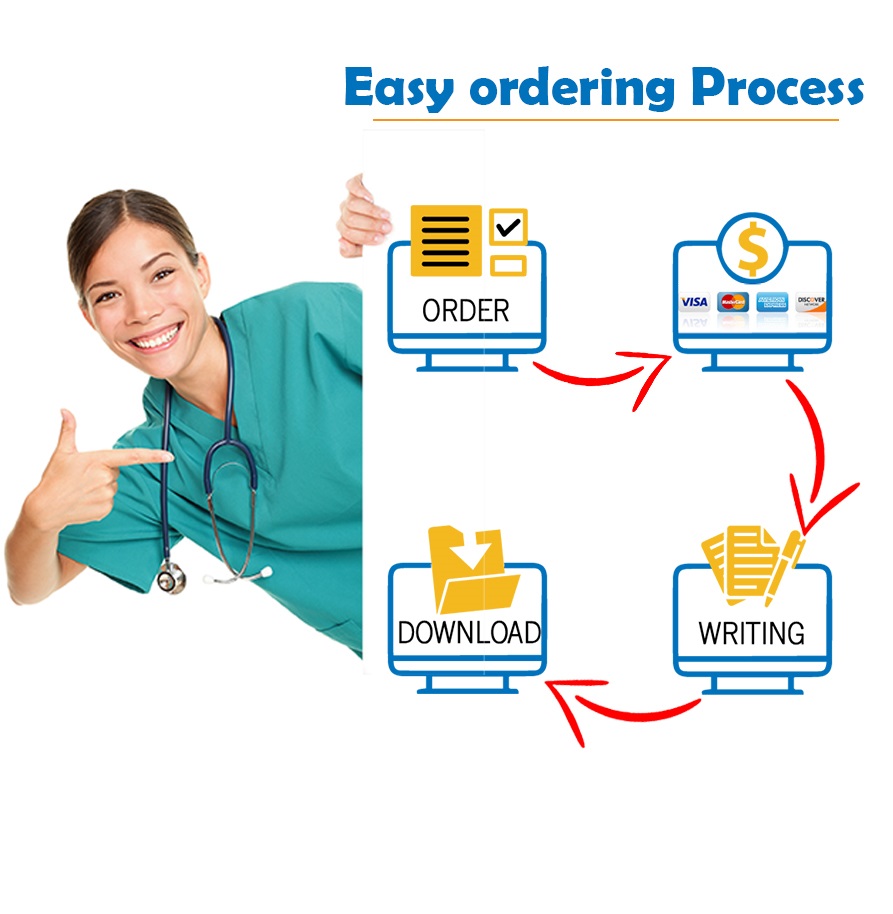Evaluation of Outcomes in Nursing Care Plans

To provide high-quality nursing care, developing and evaluating care plans is essential. By doing so, nurses can ensure that their patients receive the best treatment. This blog post will take a closer look at the outcomes of nursing care plans. Specifically, we will explore the different ways in which this process can be carried out. We will also examine some of the benefits of careful Evaluation. Finally, we will offer some tips for those looking to improve their nursing care plans.
WHY IS THE EVALUATING PROCESS IMPORTANT?
Nursing care plans are important to ensure that nurses provide the best possible care to their patients. Nursing care plans can be evaluated using patient interviews, surveys, observation, and chart review. The evaluation process involves setting goals, collecting data, analyzing the data, and making decisions based on the findings. This process is essential to determine whether the nursing care plan is effective and if changes need to be made.
When evaluating the outcomes of a nursing care plan, it is crucial to consider the patient’s overall health status, progress towards goals, and satisfaction with the care they are receiving. Nurses should also consider how well the nursing care plan works with other aspects of the patient’s care, such as their medications and other treatments.
WHAT IS A NURSING CARE PLAN?
A nursing care plan is a written plan of care that is individualized for a patient. Nursing care plans are developed by nurses working with patients and their families to identify health care needs and goals. Nursing care plans detail the nursing interventions nurses will provide to patients and the expected outcomes of those interventions. Nursing care plans serve as a guide for nurses to provide the best possible care for their patients.
WHAT ARE THE PURPOSES OF A NURSING CARE PLAN?
The primary purpose of a nursing care plan is to ensure that all of a patient’s health care needs are met. Nursing care plans also help ensure patients receive coordinated and comprehensive care. Nursing care plans can also educate patients and their families about their health care needs and how to meet those needs best.
NURSING OUTCOME STATEMENTS
Nursing care plans should include Nursing Outcome Statements (NOS) that describe the desired outcomes of nursing care. Nursing Outcome Statements are specific, measurable, achievable, relevant, and time-bound (SMART) statements describing what a patient can do as a result of nursing care.
For example, a Nursing Outcome Statement for a patient with congestive heart failure might be “The patient will maintain fluid balance as evidenced by daily weights within 2% of baseline.”
Another example of a Nursing Outcome Statement is “The patient will verbalize an understanding of the disease process and management, as evidenced by questions asked and statements made during teaching sessiNurses can use Nursing Outcome Statements used to develop a Nursing Care Plan. The Nursing Care Plan is a tool nurses use to individualize patient care. It includes Nursing Diagnoses (problems), Nursing Interventions (actions to take to solve the problems), and Nursing Outcomes (expected results of the interventions).
The Nursing Process is a systematic approach to planning and providing nursing care. It includes the following steps:
- Assessing the patient to identify problems and needs
- Planning interventions to address the identified problems and needs
- Implementing the interventions
- Evaluating the outcomes of the interventions
If you need help with any step of the Nursing Process, our expert nursing tutors can assist you. We also provide Nursing Care Plans for specific patients and diseases.
Contact us at StudentHomeworks.com to learn more!

METHODS OF EVALUATION IN NUNursing students can use several methods to evaluate nursing interventions’ outcomes. These include:
1. Patient surveys
2. Nursing audits
3. Clinical reports
4. Nursing research
5. Benchmarking
Each method has strengths and weaknesses, and no single method is perfect. However, combining these methods can give you a well-rounded picture of your interventions’ performance.
• Patient surveys- are a great way to get feedback on your nursing care. They can assess patient satisfaction, understand how well patients are being cared for, and identify areas where improvements need improvement.
• Nursing audits are another helpful tool for evaluating outcomes. Audits can be used to assess the quality of care being provided, identify areas of improvement, and make recommendations for change.
• Nursing research Conducting nursing research is another way to evaluate the outcomes of your interventions. Nursing research can study the effectiveness of specific interventions, compare different approaches to care and understand how patients respond to different treatments.
• Clinical reports are another information medical practitioners can use to evaluate outcomes. Clinical reports can provide insights into the effectiveness of care, identify areas of improvement, and make recommendations for change.
• Benchmarking is a process of comparing your organization’s performance action against other similar organizations. Benchmarking can be used to identify areas of excellence and areas in need of improvement.
EXAMPLES OF NURSING OUTCOMES
Nursing outcomes are the results of nursing care. Nursing outcomes can be positive or negative. Positive nursing outcomes indicate that the patient has achieved the desired goal of care. Negative nursing outcomes indicate that the patient has not achieved the desired goal of care.
Some examples of positive nursing outcomes include:
i. The patient’s vital signs are within normal limits.
ii. The patient can ambulate independently.
iii. The patient can perform activities of daily living independently.
iv. The patient demonstrates increased knowledge about their condition.
Some examples of negative nursing outcomes include:
i. The patient’s vital signs are outside of normal limits.
ii. The patient is not able to ambulate independently.
iii. The patient cannot perform normal actions independently.
iv. The patient demonstrates decreased knowledge about their condition.
The nursing care plan is a guide for the nurse to provide care for the patient. Nursing care plans are individualized for each patient and are based on the patient’s assessment data. The nurse uses the assessment data to identify problems, set goals, and develop interventions.
Evaluation of nursing outcomes is critical to ensure that the patient is receiving the best possible care. Nursing outcomes can be positive or negative. Positive nursing outcomes are those that meet the goals set for the patient. Negative nursing outcomes are those that do not meet the goals set for the Medical practitioners can measure nursing outcomes assured regarding the patient’s physical, psychological, and social condition.
The Evaluation of nursing care plans is essential to ensure that the patient receives the best possible Nurses can evaluate professionals can evaluate nursing care plans in terms of effectiveness, efficiency, and appropriateness.
Nursing care plans can be evaluated using a variety of methods. People can use a survey to assess patients’ satisfaction with their people can also use surveys to assess patients’ satisfaction with the care they provide. Another method is to use focus groups. Focus groups can identify areas where improvements need to be made in the nursing care plan. Finally, interviews can be conducted with patients, nurses, and other health care professionals to assess the effectiveness of the nursing care plan.
IMPORTANCE OF EVALUATION IN NURSING CARE PLANS
Evaluation is essential in nursing care plans because it allows nurses to determine whether or not the care they provide is effective. If a nursing care plan is ineffective, it can be revised or discontinued. The Evaluation also allows nurses to identify areas where improvements need to be made. Finally, Evaluation provides documentation of the effectiveness of the nursing care plan, which nurses can use to justify the continuation or revision of the plan.
OUTCOMES OF EVALUATING PLANS
The methods used to evaluate nursing care plans include; literature review, which provides information about best practices and evidence-based care. Another method is to collect data from patients, nurses, and other health care professionals. This data can be used to assess the nursing care plan’s effectiveness and identify areas where improvements need to be made.
WHY DOES THE NURSE CONDUCT EVALUATION MEASURES?
The nurse conducts evaluation measures to ensure patients receive the best care. Evaluation allows the nurse to identify areas where improvements need to be made, and it also allows the nurse to assess the effectiveness of the nursing care plan.
One method is to collect data from patients, nurses, and other health care professionals. This data can be used to assess the nursing care plan’s effectiveness and identify areas where improvements need to be made. Another method is to conduct a literature review. This involves searching for and reviewing articles related to the nursing care plan. This can provide insights into how well the nursing care plan works and what areas need improvement. Finally, another method is to create a focus group. This involves bringing together a group of people with experience with the nursing care plan. The group can then discuss their experiences and offer suggestions for improvements.
No matter which method is used, it is essential to regularly evaluate the outcomes of the nursing care plan. This will ensure that the plan is effective and that any necessary changes are made. By doing this, nurses can provide the best possible care for their patients.
 CAN RATING SCALES HELP NURSES EVALUATE PATIENT OUTCOMES?
CAN RATING SCALES HELP NURSES EVALUATE PATIENT OUTCOMES?
Yes, rating scales can help nurses evaluate patient outcomes. They provide a way to quantify care results and track changes over time. Rating scales can also be used to compare the results of different care plans nurses can use this information to decide which plan is more effective.
WHAT ARE SOME STANDARD EVALUATION TOOLS?
There are many different nursing care evaluation tools. Some common ones include the Nursing Outcomes Classification (NOC), the Nursing Interventions Classification (NIC), and the client Performance Scale (CPS). These tools are used to evaluate different aspects of care, such as patients’ progress towards goals, the effectiveness of interventions, and the overall quality of care.
What are some benefits of using nursing care evaluation tools?
There are many benefits to using nursing care evaluation tools. These tools can help nurses identify improvement areas, track progress over time, and decide which interventions are most effective. Additionally, they can provide valuable data nurses can use to assess the overall quality of care.
WHAT ARE SOME CHALLENGES OF USING NURSING PLAN EVALUATION TOOLS?
One challenge of using nursing care evaluation tools is that they can be time-consuming. Additionally, they require nurses to understand the Nursing Interventions Classification (NIC) and the Client Performance Rating Scale (CPRS). Another challenge is that they may not be able to capture all the data necessary for decision-making. For example, they may not be able to take into account the preferences of individual clients or the unique circumstances of each case.
WHAT ARE SOME BENEFITS OF USING NURSING CARE EVALUATION TOOLS?
Nursing care evaluation tools can help nurses systematically and objectively assess the effectiveness of their care plans. They can also help to identify areas where improvements are needed. Additionally, they may help promote communication and collaboration between different healthcare team members.
HOW CAN YOU EVALUATE THE OUTCOMES OF A NURSING CARE PLAN TO ENSURE THAT IT IS EFFECTIVE AND MEETS THE NEEDS OF THE PATIENT/CLIENT POPULATION BEING SERVED?
There are a few different ways surveyors can evaluate the outcomes of a nursing care plan. One way is to use Nursing Outcome Classification (NOC) and Nursing Interventions Classification (NIC) systems. These systems provide a standardized way of measuring and assessing the outcomes of nursing care plans. Additionally, patient surveys and focus groups can collect feedback about the care plan and its effectiveness. Finally, a review of data such as patient satisfaction scores, length of stay, and readmission rates can give insight into whether or not the nursing care plan is working.
WHAT FACTORS SHOULD YOU CONSIDER WHEN ASSESSING THE OUTCOMES OF A NURSING CARE PLAN, AND HOW DO THEY RELATE TO EVIDENCE-BASED PRACTICE (EBP)?
When assessing the outcomes of a nursing care plan, it is crucial to consider factors such as patient satisfaction, length of stay, readmission rates, and clinical outcomes. These factors can give insight into whether or not the care plan is working and if it is evidence-based. Additionally, collecting feedback from patients and nurses is essential to understanding how the care plan works in practice.
HOW CAN YOU USE DATA FROM THE EVALUATION OF OUTCOMES TO IMPROVE NURSING CARE PLANS FOR FUTURE PATIENTS/CLIENT POPULATIONS SERVED BY YOUR ORGANIZATION OR FACILITY?
Evaluating the outcomes of nursing care plans can help improve future care plans in several ways. For example, high readmission rates could indicate that the discharge planning process needs to be improved. Additionally, if patient satisfaction is low, this could indicate that more patient education is needed or that the overall care plan needs to be adjusted. Data from the Evaluation of outcomes can also be used to benchmark progress and identify areas where further improvement is required.
WHAT CHALLENGES DO NURSES FACE WHEN EVALUATING THE OUTCOMES OF THEIR NURSING CARE PLANS, AND HOW CAN THESE BE OVERCOME?
One of the challenges nurses face when evaluating the outcomes of their nursing care plans is often a lack of data available. This can make it challenging to identify any trends or patterns that may be present. Additionally, even when data is available, it can be challenging to interpret it accurately. This is why working with a qualified online homework help service can benefit. StudentHomeworks.com has a team of experts who can help you understand and interpret the data related to your nursing care plan to make the most informed decisions possible. Contact us today to learn more about how we can help you overcome the challenges of evaluating the outcomes of your nursing care plan.
Nursing is a complex field, and one of the most critical aspects of providing care is ensuring that patients experience positive outcomes. Unfortunately, evaluating the outcomes of nursing care can be difficult due to the lack of data available. This can make it challenging to identify any trends or patterns that may be present. Additionally, even when data is available, it can be challenging to determine how to best use it to improve care.
At StudentHomeworks.com, we understand the challenges of nursing care plan evaluation. That’s why we offer comprehensive online homework help that can make the process easier. Our team of experts can provide guidance and support as you work to identify and assess data. We can also help you develop strategies for using data to improve care.
We encourage you to contact us today if you want assistance with nursing care plan evaluation. We’ll be happy to discuss your needs and determine how we can best help you meet your goals. Nursing care plan evaluation can be complex, but with our help, it doesn’t have to be. Let us show you how easy it can be to get the information you need to make informed decisions about care. Contact us today!
.
Do you need a similar assignment done for you from scratch? We have qualified writers to help you. We assure you an A+ quality paper that is free from plagiarism. Order now for an Amazing Discount!
Use Discount Code "Newclient" for a 15% Discount!
NB: We do not resell papers. Upon ordering, we do an original paper exclusively for you.




